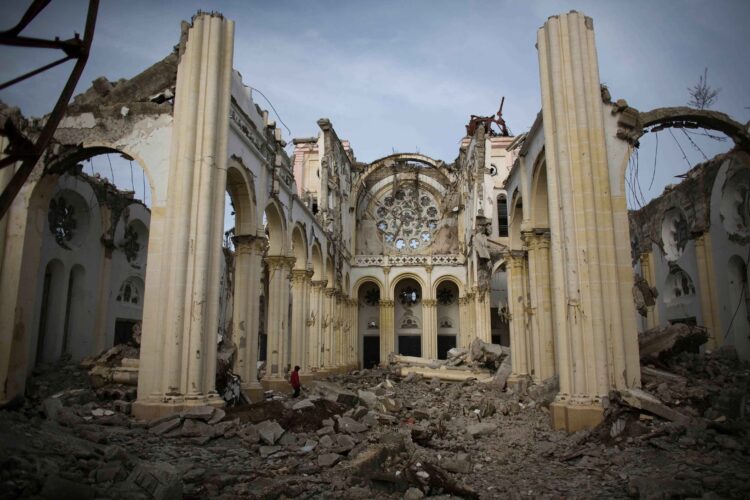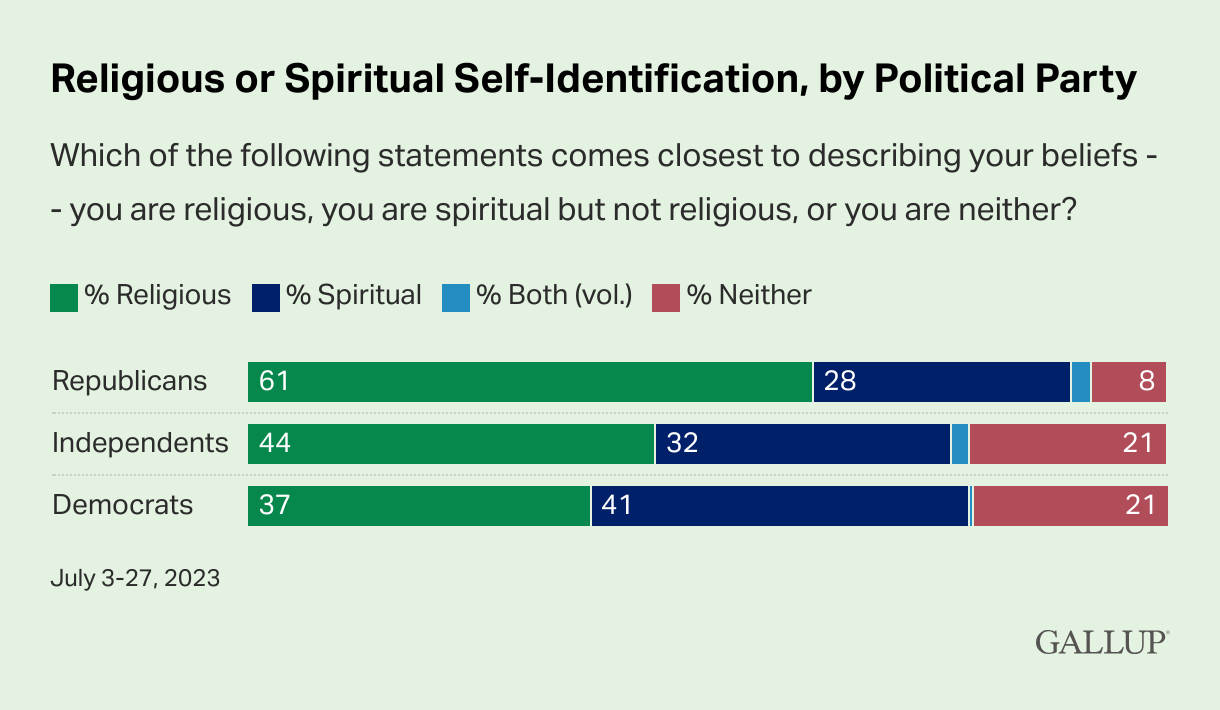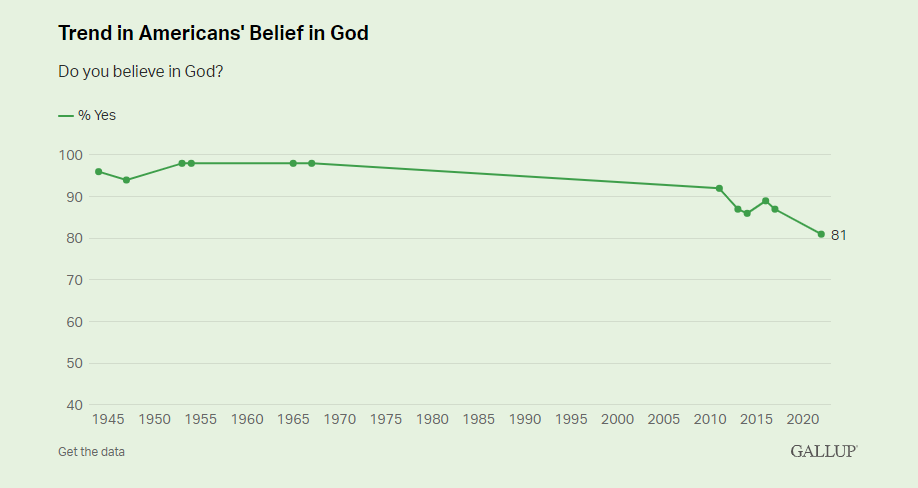The percentage of Democrats who identify as religious has declined by 23 points between 1999 and 2023, according to a new survey from Gallup.
In 1999, Gallup found that 60 percent of Democrats identified as religious, just as 62 percent of Republicans did. Now, only 37 percent of Democrats identify as religious, a drop of 23 points.
Learn the benefits of becoming a Valuetainment Member and subscribe today!
“During that time, the percentage of Democrats identifying as spiritual but not religious has increased 14 points, while the percentage saying they are neither has tripled,” the survey explains. The number of Americans identifying as religious has declined by 7 percentage points.
Republicans are the most likely to identify as religious at 61 percent, and 28 percent say they are spiritual. Democrats are more likely to say they are spiritual (41 percent) than religious. More independents say they are religious (44 percent) than spiritual (32 percent).
As for those who identify as neither religious nor spiritual, they make up about 21 percent of Democrats and Independents and only 8 percent of Republicans.
Overall, only 47 percent of Americans identify as religious while 33 percent identify as spiritual in 2023. About 2 percent identify as “both.” The portion of Americans who say neither (18 percent) is twice what it was in 1999.
In a different survey, Gallup found that belief in God among Americans has declined to a new historic low of 81 percent, compared to 98 percent in 1954.
But the belief in God or some form of spirituality has not declined nearly as severely as church attendance and church membership. Only 23 percent of Americans attended church on an average week in 2023, compared to 49 percent in 1958. Church membership fell below majority for the first time in 2021, with only 47 percent of Americans being members compared to a consistent trending in the 70s from the late 1930s to the mid-1980s.
As the belief in religion declines, so does tolerance for its display. Just this week, GOP presidential candidate Ron DeSantis was attacked by some on the right for quoting a Bible verse to the effect that Jesus is the one road to salvation, claiming it was exclusionary to practitioners of Judaism.
Wow. In an effort to pander to evangelicals, @GovRonDeSantis may have just ended his campaign cash flow and chances of getting the Jewish vote as well.
When asked if he is a man of faith, he cited John 14:6 before catching himself and stuttering over what he just said and did.… https://t.co/MCSfizO4xS pic.twitter.com/8WQLFHCsFv
— Laura Loomer (@LauraLoomer) September 22, 2023
Similarly, Biden was criticized even among pro-Israel Christian conservatives for crossing himself in the presence of Israel Prime Minister Benjamin Netanyahu.
We shouldn’t have to tell the president to NOT make the Catholic sign of the cross in front of the Prime Minister of Israel. But yet, here we are… pic.twitter.com/AGs5NAPEap
— Glenn Beck (@glennbeck) September 22, 2023
Additionally, the fact that spiritualism is on the rise even as religion falls is no surprise. As a writer in The Federalist by way of C.S. Lewis recently put it, materialism tends to “collapse on itself” and lead to a bizarre new taste for the supernatural. It may begin as ironic and whimsical, but rather quickly becomes indistinguishable from sincere belief—not in God, but rather in all that which is extra-material besides God.





















Add comment